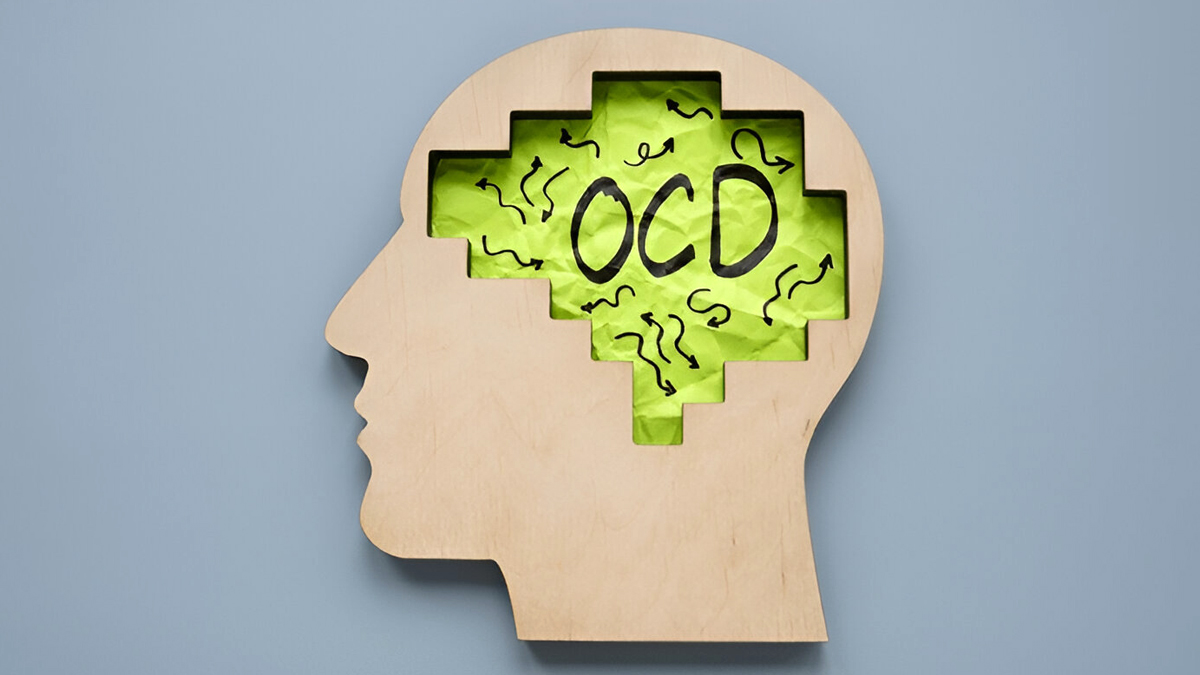
When Jenna Ortega, now a breakout star from Wednesday, bravely opened up about her battles with Obsessive-Compulsive Disorder (OCD), she illuminated a condition that few truly understand. Her story isn’t just a headline—it’s a lifeline for many grappling with intrusive thoughts, compulsions, and the heavy silence that often surrounds them.
Table of Content:-
CHECK YOUR
MENTAL HEALTH

In a candid interview on the Heart Evening Show, Ortega revealed that she has nightly OCD rituals. She shared that she sometimes goes up and down the stairs six times because she feels compelled to do so to ensure her home's safety. She stressed that the behaviours are not eccentric habits, but routine and anxiety-motivated actions spurred by magical thinking, i.e., believing that the execution of certain rituals will ward off imagined calamities. She also added that tiredness makes the behaviour worse.
In the vast world of mental health, OCD often gets misunderstood. Many still believe it's just about being overly clean or a little too organised. But the reality is far deeper and more complex.
What Is OCD?

“OCD is a condition where the brain gets caught in a loop of repetitive, intrusive thoughts (called obsessions) and uncontrollable urges or actions (compulsions). The person may know these thoughts don’t make sense, but still feels powerless to stop the rituals they’re compelled to perform,” said Dr Nimesh G Desai, Senior Consultant Psychiatrist and Former Director of IHBAS Delhi.
This isn't just about counting things or washing hands excessively; it's about a mind under siege, where the same thought keeps repeating, triggering a repetitive action that brings only temporary relief.
Also Read: OCD Isn't Just About Cleanliness: Expert Busts 5 Common Myths
OCD vs Personality Traits: Know the Difference
Now here’s where confusion often sets in. “Many people with obsessive personality traits, such as being meticulous, highly organised, or detail-oriented, are wrongly thought to have OCD. For instance, a homemaker who's particular about kitchen hygiene or a boss who’s overly perfectionist might just have a high-functioning personality style, not a disorder,” highlighted Dr Desai.
“In between lies Obsessive Personality Disorder, where a person’s rigid rules, need for control, and moral rigidity can affect relationships. However, even here, it’s important to differentiate between productive personality traits and debilitating OCD behaviours. Recognising the difference between healthy habits, personality quirks, and mental illness is key to breaking stigma,” he added.
Also Read: Effective Ways To Manage Obsessive Compulsive Disorder (OCD)
Societal Misunderstandings: “Is It Real or Just Attention-Seeking?”

Unfortunately, many people still dismiss OCD (and other neurotic disorders) as drama or attention-seeking behaviour. Since there's often no visible sign of distress, people wonder—”Is this person really suffering or just pretending?”
But the pain of OCD is real. The anxiety, fear, and tension may not be visible on the outside, but they take a massive toll on the inside. Downplaying someone's suffering just because we can't see it is unfair and dangerous.
Similarly, neurotic illnesses like anxiety, phobias, or OCD must be treated seriously, because for the sufferer, the pain is 100% real.
[Disclaimer: This article contains information provided by an expert and is for informational purposes only. Hence, we advise you to consult your professional if you are dealing with any health issue to avoid complications.]
Also watch this video
How we keep this article up to date:
We work with experts and keep a close eye on the latest in health and wellness. Whenever there is a new research or helpful information, we update our articles with accurate and useful advice.
Current Version
Aug 07, 2025 17:48 IST
Published By : Sushmita Sharma